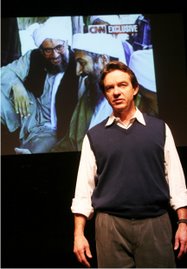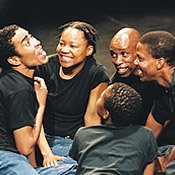the economist again:
Yanji, a town predominately of ethnic Korean Chinese, then had something of wartime Casablanca about it. The place was crawling with South Korean, Chinese and North Korean spooks; snakeheads promising to get refugees, for a sum, into safe third countries; and starving North Korean women willing to sell themselves for a song in return for protection.
I had wanted some of the story, but, as a journalist, I came away feeling a fraud. I had met a Korean Chinese—a Communist official, indeed—who had promised I could meet two young North Korean women whom he was sheltering; they would tell me their story. But when I saw them the following evening, it was clear that whatever their past sufferings, these two large plump women were now party girls. They insisted we hire a private karaoke room. They knew all the South Korean songs. And with a show of considerable force they pushed me on to my back on the sofa, cramming grapes into my mouth. I tried, I swear I tried, but I never did get their story, though I remember charging the experience to expenses.




No comments:
Post a Comment